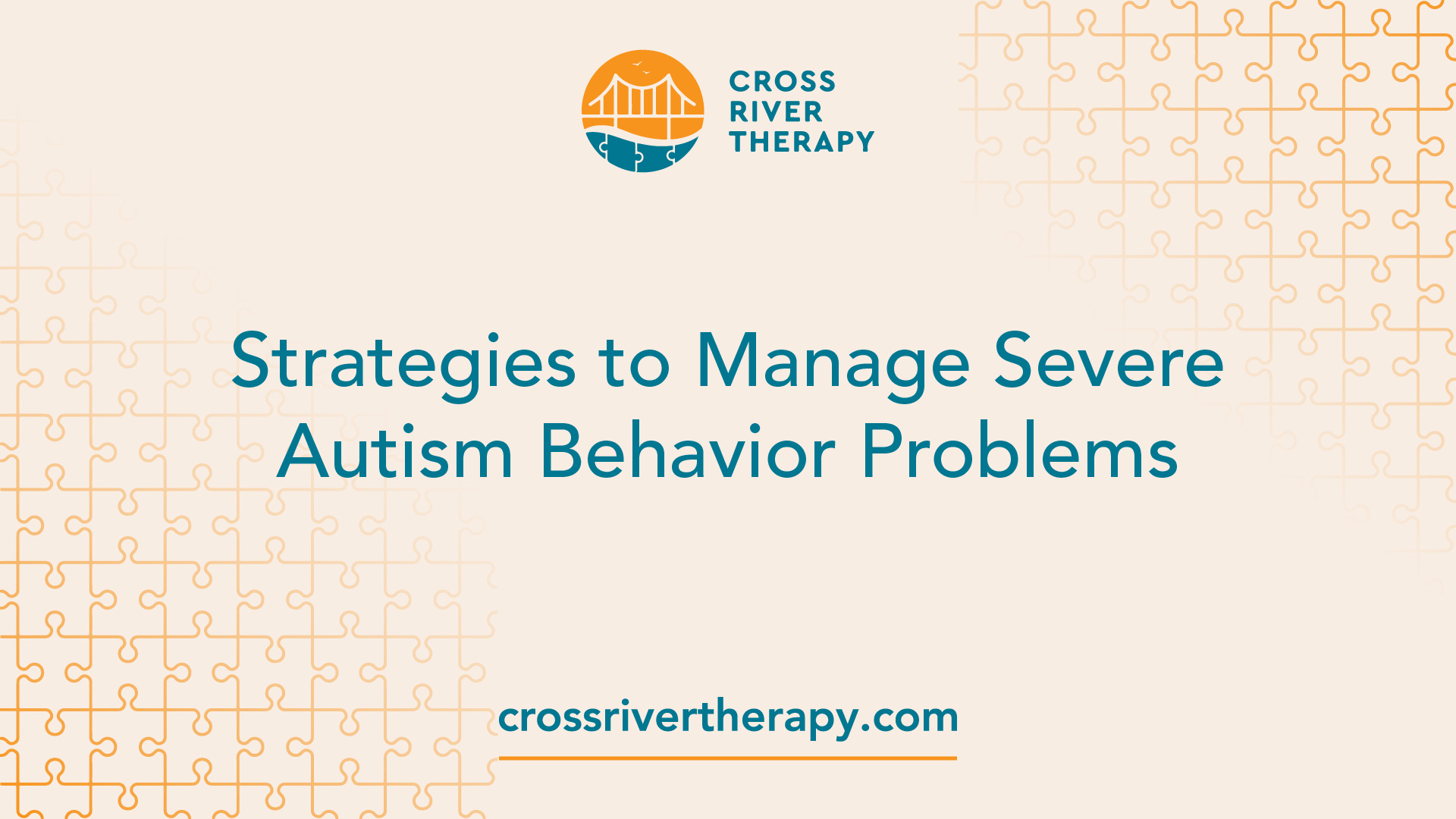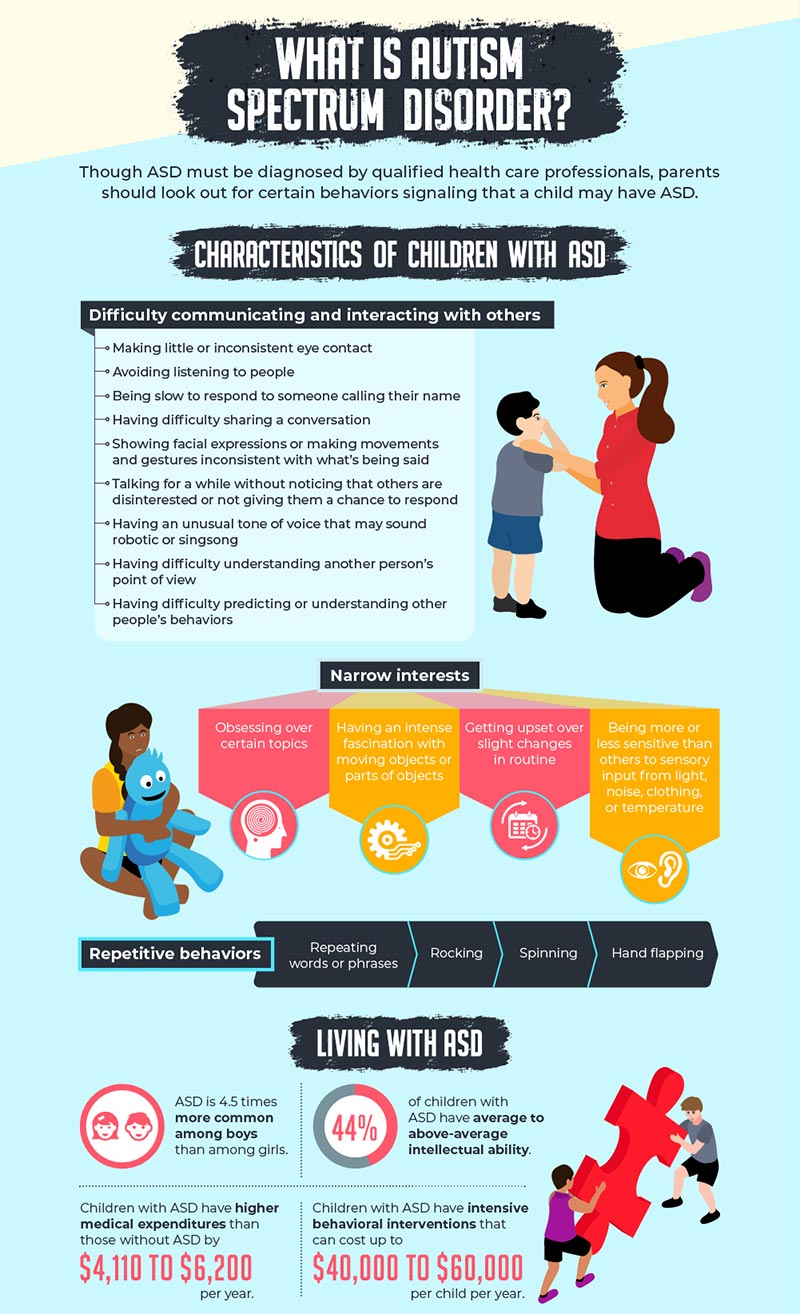Secret Symptoms And Signs to Recognize in People With Behavior Autism
When you run into somebody with behavioral autism, acknowledging essential symptoms and signs is necessary. You may observe difficulties in social interactions and communication, as well as a solid demand for regimens. Furthermore, sensory sensitivities can lead to overwhelming experiences. Recognizing these attributes can boost your support and interventions, but there's even more to discover about just how these actions materialize in everyday situations. Allow's explore what these signs actually resemble.
Challenges in Social Communications
When you communicate with a person on the autism range, you might observe they struggle with social signs and communication. These challenges can make social interactions really feel frustrating for them. You might see them preventing eye call or standing too close or as well away throughout discussions, which can create misconceptions. They may not pick up on body movement or faces, making it harder for them to assess exactly how others are feeling.
Additionally, you may locate that they prefer regimens and acquainted settings, which can restrict their willingness to take part in brand-new social situations. When they do engage, they could talk regarding their passions in terrific information without discovering if you're interested. This can lead to prejudiced discussions that leave you feeling detached. Understanding these obstacles can aid you approach interactions with compassion and patience, promoting a much more comfy setting for both of you.
Trouble With Verbal and Non-Verbal Interaction

Non-verbal interaction can be also much more challenging. You may see a lack of eye call or limited usage of gestures, which can make communications feel unpleasant. Faces might not constantly align with the conversation, leading to complication regarding their sensations. Recognizing these indicators is necessary, as it helps you far better support and involve with people on the autism spectrum. By recognizing their communication difficulties, you can foster a lot more meaningful connections and give a more helpful setting.
Repetitive Habits and Routines
Interaction challenges often accompany other indications of autism, such as recurring behaviors and a strong preference for routines. You may observe that people with autism often take part in particular, repetitive activities, like hand-flapping, shaking, or duplicating expressions. These actions can offer comfort and a sense of control in an often overwhelming world.
Routines are equally essential; lots of people grow when they comply with an organized schedule. You might locate that adjustments to these regimens can cause considerable distress. If they have an everyday ritual of eating morning meal at a details time or adhering to a specific path to school, any kind of disturbance can trigger stress and anxiety.
Acknowledging these patterns helps you comprehend their habits and provide assistance. By fitting their need for regular and enabling repetitive activities, you can produce a more comfy atmosphere that eases their obstacles.
Sensory Sensitivities

Usual Sensory Triggers
Sensory level of sensitivities can substantially influence everyday life for people with autism, as specific stimuli commonly cause frustrating reactions. Typical sensory triggers include loud noises, bright lights, and solid scents. Comprehending these triggers can assist you manage your atmosphere better.
Behavior Feedbacks Clarified
Recognizing your behavioral reactions to sensory sensitivities is essential, as they typically disclose just how you engage with the globe. You might notice that particular audios, lights, or structures overwhelm you, leading to anxiousness or pain. When confronted with these stimulations, you may withdraw, cover your ears, and even respond aggressively. These responses aren't simply peculiarities; they're your way of handling overstimulation. You may additionally discover yourself looking for particular sensory experiences, like deep pressure or silent environments, to aid ground yourself. Recognizing these patterns aids you recognize your needs far better and can direct how you connect them to others. By acknowledging your sensory level of sensitivities, you can work in the direction of producing an environment that really feels more comfy and manageable for you.
Coping Approaches Summary
Acknowledging your sensory level of sensitivities is simply the primary step; currently it's time to discover coping techniques that can assist you manage those experiences effectively. Start by creating a sensory toolkit customized to your requirements. This can include noise-canceling headphones, fidget toys, or relaxing fragrances. Developing an organized regimen can also offer predictability, minimizing anxiousness around sensory overload. Take breaks in a quiet room to collect yourself when you really feel overloaded. Exercising mindfulness techniques such as deep breathing can aid ground you in the minute. Additionally, communicate your needs with those around you; having supportive family and friends can make a big difference. Remember, locating what functions ideal for you might require time, so be open and patient to trying new methods.
Limited Rate Of Interests and Focus
While several people establish a vast array of interests, those with autism typically demonstrate limited rate of interests and an intense focus on details topics. You may observe that somebody with autism can spend hours diving into their favored subject, whether it's a specific sort of train, a particular motion picture, or a scientific principle. This intense emphasis isn't just a hobby; it can come to be a central component of their identity and social communications.
You may locate that conversations focus on these rate of interests, and they might have a hard time to helpful site involve in wider subjects. For them, these focused passions offer convenience and a sense of proficiency. While it's important to motivate exploration of new topics, respecting their enthusiasms is equally necessary. By understanding and recognizing these limited interests, you can foster a helpful environment where they feel valued and recognized, enabling more significant links and interactions.
Psychological Law Problems
Individuals with autism typically deal with challenges in psychological law, which can be influenced by their extreme focus on particular rate of Get More Information interests. You could see that when a person is deeply taken part in a favored task, they can experience solid emotions, whether excitement or aggravation. When things do not go as prepared., this intensity sometimes makes it tough for them to move gears or handle their feelings - Autism Spectrum Therapies.
:max_bytes(150000):strip_icc()/VWH-LauraPorter-SpectrumOfAutismTraits-4000x2700-0b5d3311e5794f6ca7e72bdc4672eae5.png)
Irregularity in Developmental Turning Points
When it comes to developmental turning points, you'll see that people with autism typically reveal a variety of variability. Some might strike landmarks on schedule, while others may delay behind or progression at a various pace. You might see a child stand out in language abilities however struggle with social interactions. This variance can be complicated, as standard standards do not constantly use.
It's important to identify that each person's trip is special. Observing these patterns can assist you understand their strengths and needs better.
Regularly Asked Concerns
Exactly How Is Autism Diagnosed in Kid and Adults?
To diagnose autism in children and grownups, specialists assess behavior, interaction skills, and social communications. If an individual satisfies the criteria for autism range disorder., they commonly use standard tests, meetings, and observations to figure out.
Are There Various Sorts Of Autism Range Disorders?
Yes, there are different kinds of autism range conditions, consisting of Asperger's syndrome and prevalent developing disorder-not otherwise defined. Each kind varies in extent and qualities, so recognizing these distinctions can assist you far better support individuals with autism.
What Treatments Are Effective for Individuals With Autism?
When taking into consideration effective treatments for people with autism, you'll find choices like Applied Actions Evaluation, speech therapy, and work-related treatment. Each approach can assist boost interaction, social skills, and everyday operating customized to individual requirements.
Can People With Autism Lead Independent Lives?
Yes, people with autism can lead independent lives. With the right support, skills training, and sources, you can aid them create self-sufficiency, manage daily tasks, and prosper additional reading in numerous atmospheres, promoting their freedom.
Exactly How Can Families Assistance Liked Ones With Autism?
You can support your liked ones with autism by producing an organized atmosphere, motivating their passions, exercising patience, cultivating communication, and advertising social abilities. Celebrate their success, regardless of exactly how small, and develop a helpful area.
Although many people on the autism spectrum can make use of and recognize language, they typically deal with substantial challenges with both non-verbal and verbal communication. Acknowledging these indications is necessary, as it assists you much better support and engage with individuals on the autism range. You may notice that people with autism frequently involve in particular, repeated actions, like hand-flapping, rocking, or repeating expressions.Sensory level of sensitivities can substantially affect everyday life for individuals with autism, as particular stimulations typically set off overwhelming responses.When it comes to developing milestones, you'll notice that people with autism typically show a wide array of variability.
Comments on “What to expect when working with an Autism Behavioral Therapy specialist”